PhD Letter of Recommendation Template
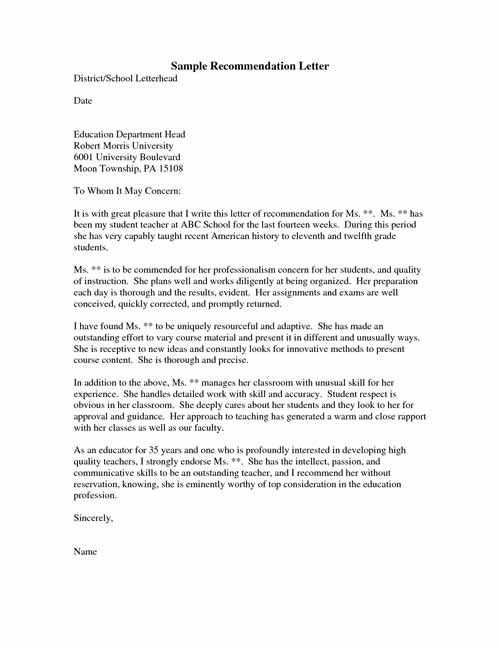
When applying for advanced academic programs, having a compelling endorsement from a respected individual is crucial. Such endorsements serve as a testament to your abilities, achievements, and potential. A well-crafted reference can greatly influence the decision-making process, helping to distinguish you from other applicants.
Understanding the importance of these references is the first step toward preparing a persuasive submission. Whether written by a professor, mentor, or professional contact, the content must reflect your academic and personal strengths. An impactful reference highlights your dedication, skills, and contributions in a clear and concise manner.
Crafting this kind of endorsement requires a structured approach. Knowing what to include, how to format it, and how to present your qualities in the most positive light can make a significant difference. In this guide, we will explore how to create an effective and convincing academic endorsement that speaks to your qualifications.
Why PhD Recommendation Letters Matter
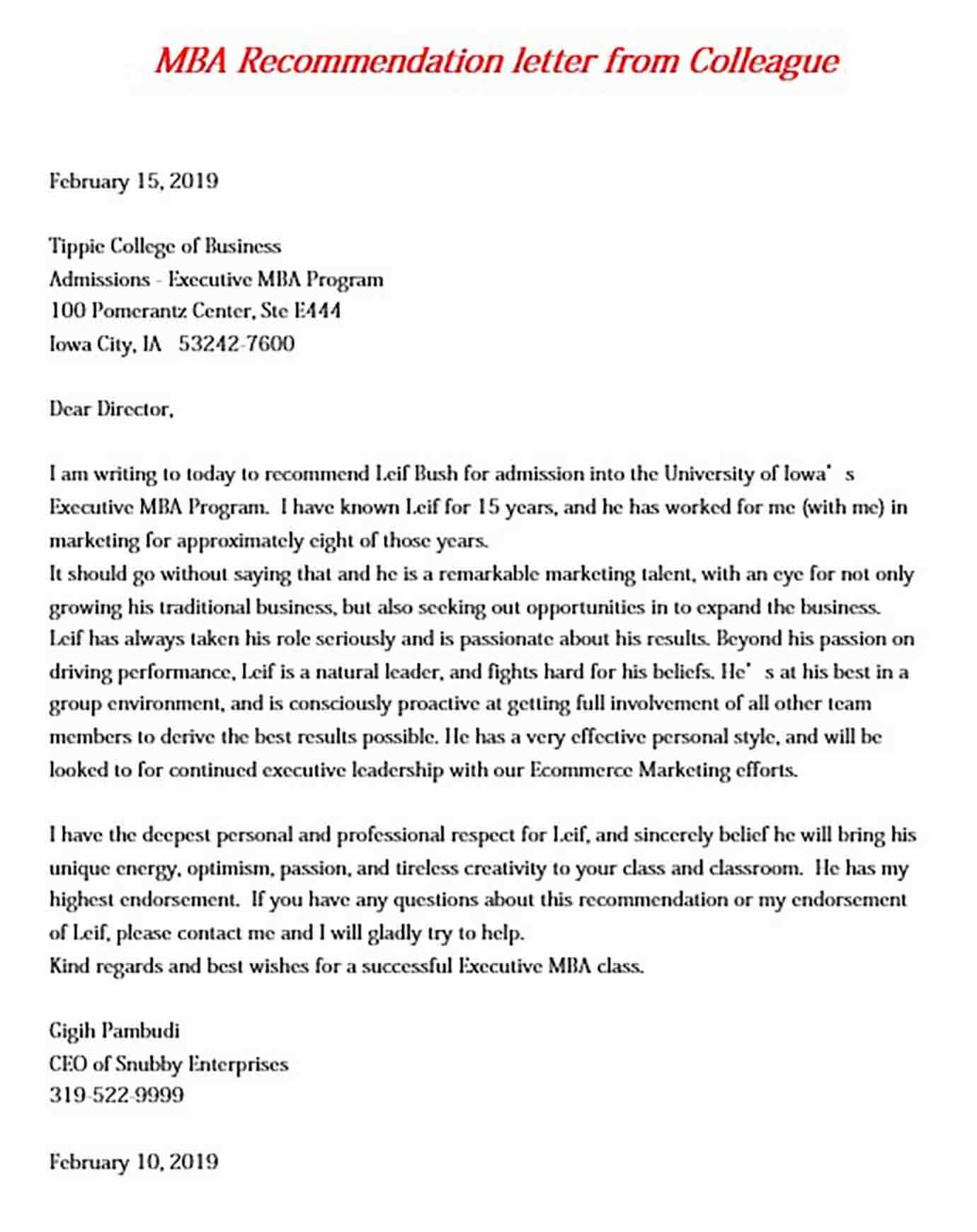
Academic endorsements play a crucial role in graduate school admissions. These written statements provide insight into your abilities, character, and achievements from someone who knows you well in a professional or educational capacity. They offer admissions committees a deeper understanding of your potential and help paint a more comprehensive picture of you as a candidate.
Building Credibility and Trust
One of the primary reasons such endorsements are valued is their ability to build trust. Admissions committees rely on these insights to assess an applicant’s fit for the program. A strong recommendation from a respected individual adds credibility, showing that you are capable, hardworking, and prepared for the challenges ahead.
Highlighting Key Qualities
Endorsements also provide an opportunity to emphasize personal traits that may not be fully conveyed in other application materials. Attributes such as leadership, problem-solving skills, or dedication to research can be highlighted, offering a more holistic view of your qualifications.
Key Elements of a Strong Letter
A powerful endorsement includes several key components that effectively communicate your strengths, abilities, and potential. To make a lasting impression, the individual writing the statement must focus on specific areas that highlight your academic and personal qualities. The following elements should be present in any compelling document:
- Introduction – Clearly stating the writer’s relationship with you and their qualifications to assess your abilities.
- Specific examples – Illustrating your skills with concrete examples of your accomplishments and contributions.
- Personal qualities – Emphasizing attributes such as determination, creativity, or work ethic that set you apart from other applicants.
- Academic achievements – Detailing notable accomplishments, including research projects, papers, or other scholarly activities.
- Conclusion – A strong closing statement reaffirming the writer’s endorsement and confidence in your success.
Each of these elements contributes to creating a well-rounded, effective statement that supports your application and enhances your chances of success in competitive programs. A well-organized and thorough endorsement can make a significant difference in the decision-making process.
How to Structure Your Recommendation
Creating a well-organized endorsement is essential for making a strong impact on the reader. A clear structure helps convey the message in a concise and persuasive way. The goal is to guide the reader through a logical flow that highlights your strengths and qualifications. Below are the key steps to follow when structuring your written support:
Start with a brief introduction that outlines the writer’s background and connection to you. This section sets the stage for why their opinion is credible. Following this, the body should include detailed examples of your skills, accomplishments, and personal attributes. Organize these examples in a way that builds upon each other to create a compelling narrative of your potential. End with a strong conclusion that reinforces the writer’s support and expresses confidence in your future success.
Maintaining clarity and coherence throughout the document is crucial. Each section should flow logically, ensuring that the reader can easily follow the argument being presented. A well-structured support piece not only strengthens your application but also makes the writer’s endorsement more effective.
Common Mistakes to Avoid in Letters
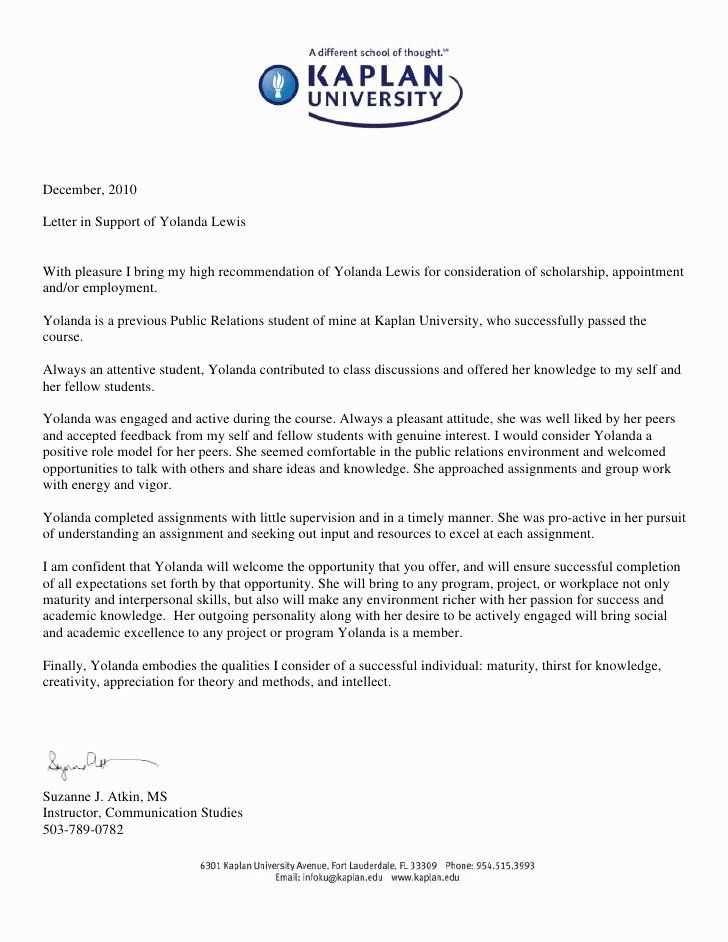
While crafting an effective academic endorsement is crucial, certain missteps can weaken its impact. To ensure the document is persuasive and credible, it’s important to be mindful of common pitfalls that can undermine the message. Avoiding these mistakes will help strengthen the endorsement and present a more compelling case to the reader.
Vague or Generic Statements
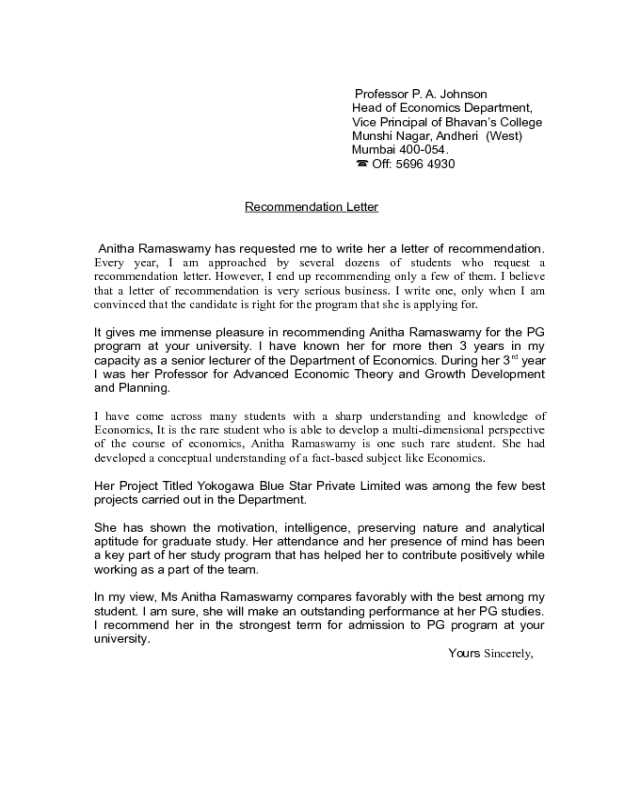
One of the most frequent errors is the use of generalizations. Phrases like “he/she is a great student” or “they are a hard worker” lack specificity and fail to provide meaningful insight. Instead, focus on providing clear, concrete examples that demonstrate the candidate’s strengths and abilities in action.
Overuse of Flattery
Excessive praise without substance can make the endorsement seem insincere. Instead of relying on excessive compliments, it’s better to provide balanced, thoughtful observations supported by real achievements. This will make the endorsement more genuine and credible.
Focus on providing specific details and examples of accomplishments to avoid these common mistakes. A well-thought-out, personalized endorsement is far more effective than one that relies on broad, unsubstantiated claims.
Choosing the Right Recommender
Selecting the right individual to write your academic endorsement is a critical decision. The recommender should be someone who knows you well, understands your capabilities, and can provide a strong, detailed account of your achievements. A well-chosen supporter can significantly enhance your application by offering a credible, insightful perspective on your qualifications.
Factors to Consider When Selecting a Recommender
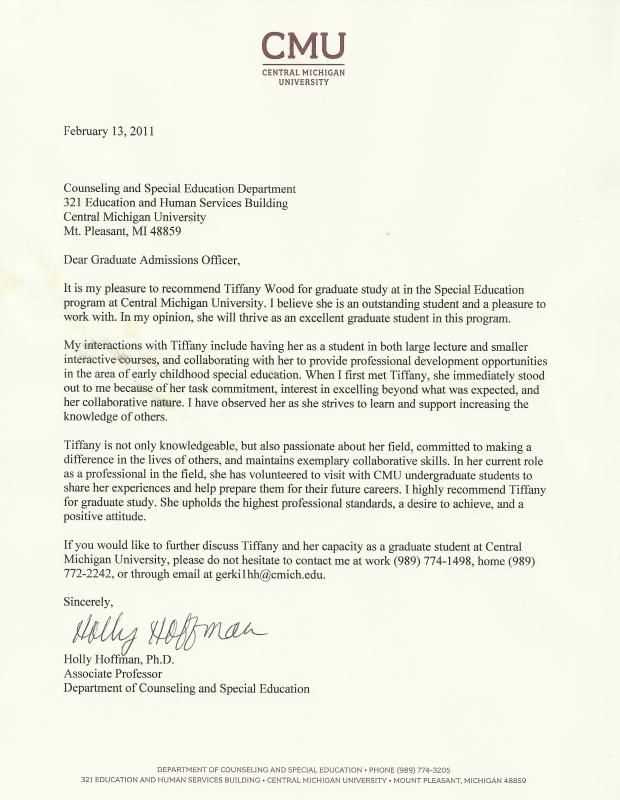
- Familiarity with your work – Choose someone who has directly observed your academic or professional accomplishments and can speak to specific examples.
- Reputation and credibility – A recommender with a respected position in your field or institution can add weight to your endorsement.
- Willingness to provide detailed feedback – Ensure the individual is committed to writing a thorough and thoughtful account of your strengths.
- Personal connection – A strong relationship with the recommender can result in a more personal and compelling endorsement.
Recommender Characteristics to Avoid
- Limited knowledge of your work – Avoid selecting someone who may only know you briefly or lacks direct experience with your capabilities.
- Overly busy or unavailable individuals – It’s crucial that the person has time to write a detailed and sincere endorsement.
By carefully considering these factors, you can choose a recommender who will provide a detailed, credible, and supportive account of your qualifications, helping your application stand out in a competitive field.
Tips for Writing a Personalized Letter
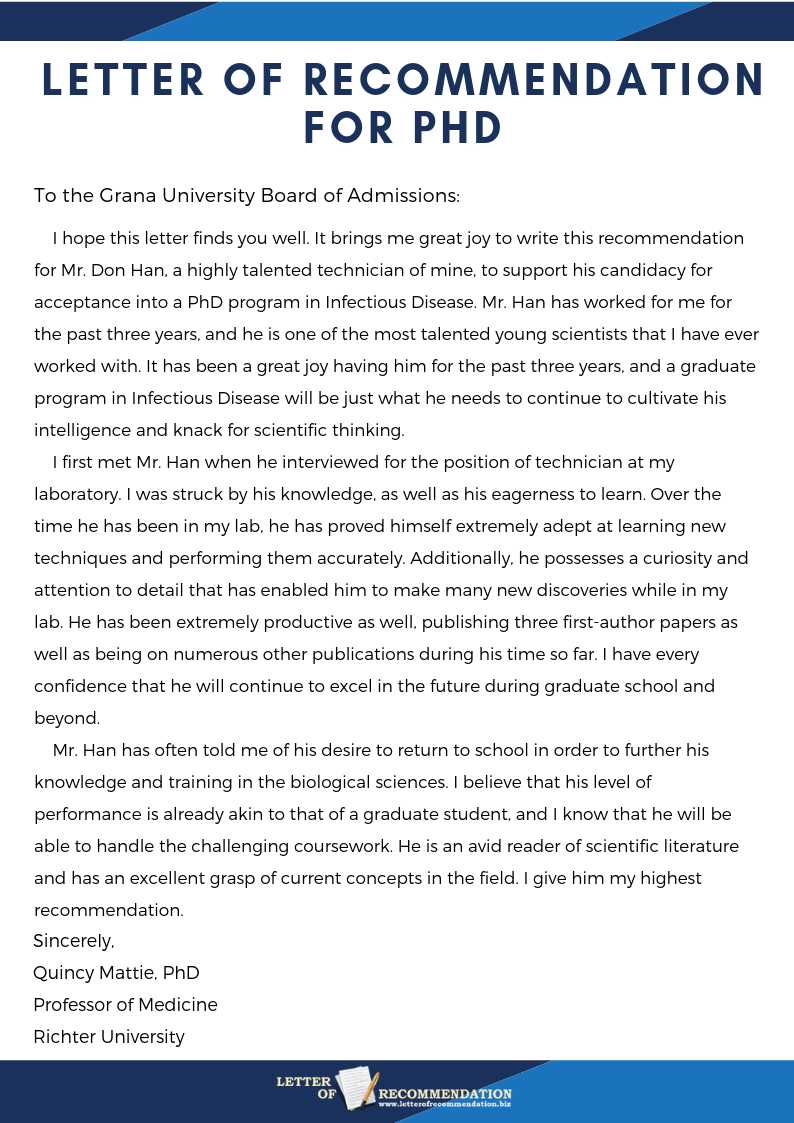
Crafting a personalized academic endorsement requires a thoughtful approach that goes beyond generic statements. To make your endorsement stand out, it should reflect the unique qualities and accomplishments of the individual being endorsed. Tailoring the content to showcase specific strengths and experiences will create a stronger, more compelling argument for their abilities.
Here are some essential tips for writing a personalized and impactful endorsement:
| Tip | Description |
|---|---|
| Be Specific | Provide detailed examples of the candidate’s work, contributions, or achievements. Focus on specific moments that showcase their skills or growth. |
| Use a Personal Tone | Write with warmth and authenticity. A personal connection will make the endorsement more genuine and relatable to the reader. |
| Avoid Clichés | Steer clear of overused phrases like “hardworking” or “dedicated.” Instead, use fresh language that captures the individual’s unique traits. |
| Tailor to the Specific Program | Consider the particular academic program or position the individual is applying for, and highlight the qualities that are most relevant to that field. |
| Be Honest | Focus on the individual’s true strengths. If there are areas for improvement, address them thoughtfully, highlighting the candidate’s potential for growth. |
By focusing on these strategies, you can create a personalized and effective endorsement that truly represents the individual’s capabilities and makes a lasting impression.